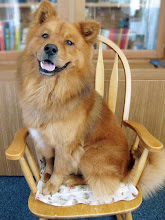
This news story absolutely blew my mind!
Here's the link if you haven't already read it:
2 Year Old Girl Mauled by DogBasically in a nutshell, this young 2 year old girl was playing with toys and the drawers in her bedroom (apparently with the dog in there) and the father was there supervising. He turned away from "2 seconds", heard a growl and when he turned back the dog was mauling the young girls face. The father beat the dog off of his daughter, took her to the neighbors, went back and stabbed the dog with a knife.
Alright here is what I have to say on the subject.
Let me say it right now, I feel really sorry for the poor girl (Taylor), the poor child wasn't even screaming when the dog was taken off of her, which goes to show how traumatic this experience must have been, and will most likely leave emotional scars on her for the rest of her life. I honestly hope she gets better.
Now here are some things that seriously bugged me. I completely understand a desperate father's attempts at trying to save his daughter by punching and beating the dog, its a moment where one doesn't really think and time is of the essence. I don't judge the father for that whatsoever. But the fact that, after he took his daughter to the neighbors, that he
left her there and went back to
stab the dog is outrageous! Should have something been done about the dog? Yes. But stabbing the dog? No. The last act was purely out of revenge, not self defense seeing how no one else was in danger, and would justly fall into the category of animal abuse.





